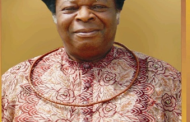It is more than a week since this edition of the Dakar Forum on Peace and security came and went but it is now that South African president’s explosive umbrage at the global North started making the rounds. The South African president, Cyril Ramaphosa’s statement there shattered the perception that he probably came to power too comfortable to bother about radical rhetoric. A video circulating on a massive scale has President Ramaphosa hitting back at metropolitan attitude of handing down instructions or lecturing their African counterpart, from Omicron to industrialization to financing insecurity right to multilateralism.
He could be heard at a session in Dakar berating his western counterparts for lack of mutual respect in favour of paternalistic treatment of their African Other. Ramaphosa gave the example of his European counterpart’s cut and dry attitude about banning travels from South Africa on account of Omicron, without any attempt at hearing from the other side or any discussions at all, much less consensus.

President Cyril Ramaphosa
The global North, he also said, is using intellectual property to forbid Africa from making its own vaccines even though some countries such as Egypt, Rwanda, Senegal, Nigeria, South Africa amongst others are keen and ready to produce own vaccines. As it was yesterday, so it still is today. Otherwise, Thabo Mbeki fought intellectual property in relation to HIV drugs just as Ramaphosa is fighting in the case of Covid-19. What a stubborn international order?
The global North, he says believes that they know what is good for Africa, a standpoint Africa has, according to him, rejected because that is a continuation of colonialism. Rather, Africa wants relationship on a respectful basis.
The South African president went into what resonates very well with what Obierika, Okonkwo’s friend in Achebe’s Things Fall Apart was saying about the “foolishness” of Umofia people in thinking that their gods and the ‘evil forest’ would deal with the earliest colonialists. The gods did no such thing and before they knew, the colonialists had, according to Obierika, put a knife to the things that held the community together, thereby undermining their capacity to fight. Okonkwo who heroically stood up to the conquerors paid the supreme sacrifice for his voluntarism, almost the same thing happening today to any African voices that doesn’t conform.
Ramaphosa is, therefore, either taking a risk by talking back to global hegemons or he has assessed the situation and discovered that he packs sufficient power to withstand the diverse tactics of sustaining dependency. He said Africans respect too much and that there might lie the explanation for Africa’s colonization. “Maybe that’s where our mistake is – we respect too much”, he said.
It is possible that with changing global configuration of power, African leaders are also going to be more assertive. It could be seen in Ramaphosa saying that it is not correct to say as the global North does that African countries do not have good enough health systems, for example, to produce the vaccines. “We have good enough health systems”, he argued, pointing out how saying there is not good enough health system could only mean a conditionality.
He contrasts African access to financing development, particularly industrialization to the global North’s. While the biggies are borrowing at the most minimal interest rate, it is so high for the African countries. Yet, as he said, South Africa is fighting insurgency in Mozambique; Egypt is fighting insurgency and insurgency is humbling Nigeria. And these wars have to be funded by the global North because they pillaged what Africans would have used to become wealthy like them. That makes Ramaphosa a dependentista or an embodiment of dependency theory: “we are poor because you are rich”
But Ramaphosa counterpoises an alternative narrative which says “This is a country on the move”. Specifically, he was referring to Senegal on account of the progress in infrastructure he observed but the country there can be changed to continent and the sentence would still have come from the South African president who also bashed the global North for talking multilateralism but acting unilaterally.
It is not surprising Ramaphosa is on warpath. Diplomatic decorum has not helped him at all. Omicron that was found to have been in Europe 11 days before South African health establishment noted it suddenly became traced to South Africa. The tactics is called ‘the geopolitics of diseases’ – a powerful way of dominating by securitizing any other parts of the world such as ‘heart of darkness’, ‘axis of evil’, ‘ungoverned space’, etc. each of these metaphors implies its own solution. When you call a place the heart of darkness, you necessarily imply the imperative of light as supposedly came subsequently in the ‘civilising mission’ called colonialism.
In the case of disesases, geopolitics speaks to almost all the dangers Prof Sophie Harman lists in her 2020 piece, the danger of stories in global health. Yet, it is from stories in global health that the narrativisation of Africa as a problem for a healthy modernity was achieved through insisting on tracking HIV, Ebola and now Omicron to Africa.
This is a trend most African leaders, especially the ideologically sensitive ones, are bound to reject as loudly as possible. Luckily, the South African capacity for popular geopolitics is tremendous. With well linked universities, journals and media, that country can situate Ramaphosa’s Pan-Africanism, produce tons of essays and overturn the narrative of Omicron as a legacy of South Africa. Nigeria should learn from South Africa that having functional universities, media, think-tanks is not a luxury. Those are the new instruments of power in global politics. They call it “the power of words in International Relations’




























